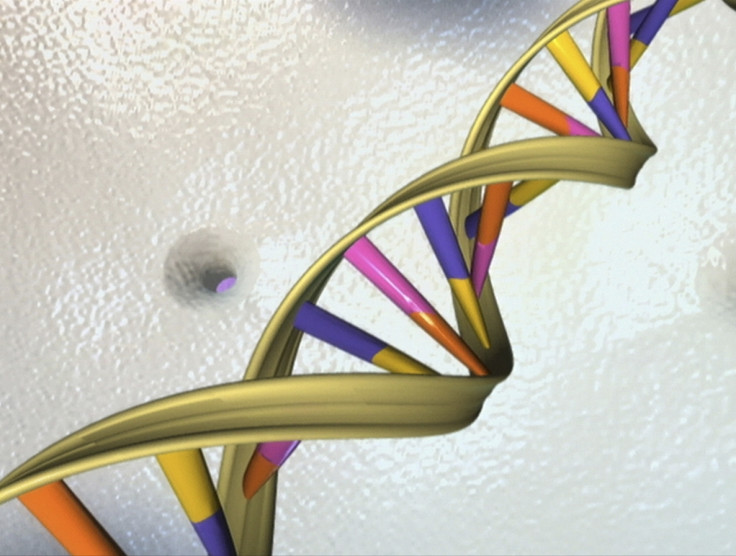The importance of raising awareness for Bohring-Opitz Syndrome
Raising awareness of BOS encourages doctors to consider this condition when diagnosing patients with similar symptoms, making it easier for affected families to get the support services and resources they need.

Bohring-Opitz Syndrome (BOS), a rare genetic disorder, is caused by a mutation in the ASXL1 gene and is characterised by severe intellectual disability, distinctive facial features, feeding difficulties, respiratory issues, and other developmental delays. In order to raise awareness of this condition, Bohring-Opitz Syndrome Awareness Day is observed on April 6th every year.
The importance of raising awareness for Bohring-Opitz Syndrome
History of bohring-opitz syndrome day
Bohring-Opitz Syndrome was first described by German paediatrician Helga Bohring and German geneticist Michael Opitz in 1999. Since then, there have been only a few hundred documented cases worldwide. The rarity of this syndrome means that many people have never heard of it, and those who have often have limited knowledge about its symptoms and treatment options.
The Bohring-Opitz Syndrome Foundation is a nonprofit organisation established in 2015 by Carrie Hunsucker and Taylor Gurganus. They aim to provide information, resources, and support to families affected by BOS. They also fund research into the causes and potential treatments for this condition.
Importance of celebrating Bohring-Opitz Syndrome Awareness Day
The purpose of Bohring-Opitz Syndrome Awareness Day is to educate the public about this rare condition and to raise funds for research into its causes and potential treatments. On this day, families affected by BOS, healthcare professionals, and advocacy groups come together to share information, stories, and resources.
One of the main goals of BOS Awareness Day is to emphasise the importance of early diagnosis. Since BOS is a genetic disorder, it can be diagnosed through genetic testing. However, due to its rarity, many doctors are not familiar with the condition and may not know to test for it. This can lead to delays in diagnosis and treatment, which can have a negative impact on the child's development and overall health.
Raising awareness of BOS encourages doctors to consider this condition when diagnosing patients with similar symptoms. By setting a precedent, families affected by BOS can easily be connected with support services and resources that can help them navigate the challenges of caring for a child with a rare disorder.
In addition to raising awareness of BOS, this day also provides an opportunity to support research into the causes and potential treatments for this condition. Since BOS is so rare, research into its causes and potential treatments is severely underfunded. By supporting research efforts, one can help to improve understanding of this condition and potentially develop new treatments that could improve the lives of those affected by BOS.
Symptoms associated with the disease
Bohring-Opitz Syndrome (BOS) affects multiple organ systems and can cause a wide range of symptoms. Common symptoms associated with BOS include:
- Intellectual disability: Individuals with BOS typically have developmental delays and intellectual disabilities.
- Distinctive facial features: People with BOS often have a small head (microcephaly), a prominent forehead, a small nose, a downturned mouth, and widely spaced eyes (hypertelorism).
- Breathing difficulties: Infants with BOS may have trouble breathing due to a narrow airway, which can cause apnea (temporary cessation of breathing).
- Feeding difficulties: Many infants with BOS have difficulty feeding and may require a feeding tube.
- Seizures: Seizures are common in individuals with BOS.
- Skeletal abnormalities: People with BOS may have abnormal curvature of the spine (scoliosis), small hands and feet, and limited joint mobility.
- Hearing and vision problems: Individuals with BOS may have hearing and vision problems, including optic nerve atrophy and cataracts.
- Skin abnormalities: People with BOS may have thin, translucent skin that is prone to bruising.
Bohring-Opitz Syndrome Awareness Day is an opportunity to celebrate the resilience and strength of those affected by BOS. While living with a rare disorder can be challenging, many families have found ways to support their children and build strong communities around them. By coming together on this day and merely talking about this rare genetic disorder, you are already able to show support for these families and honour their strength and perseverance.
Another genetic disorder whose global awareness day was recently celebrated is World Down Syndrome Day (WDSD) celebrated annually on March 21. While Teddi Shaw, a 19-month-old baby girl became the first person in the UK to receive Libmeldy, a life-saving treatment to combat Metachromatic Leukodystrophy (MLD), another rare genetic disorder.
© Copyright IBTimes 2024. All rights reserved.






